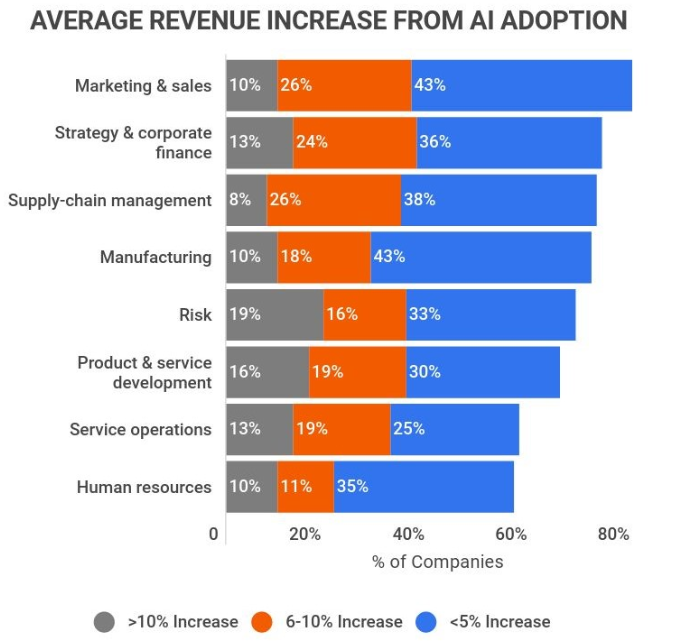
Moonpreneur
Are you scared that AI will take over your job? What if we told you that instead of fearing the rise of machines, you could learn to manage them and even get a fancy raise in the process?
With the rapid advancement of technology, it’s no surprise that the field of machine learning is projected to grow at an unprecedented rate in the coming years.
The global machine-learning industry is projected to have a Compound Annual Growth Rate (CAGR) of 38.8% between 2022-2029. That’s not all, as the demand for machine learning engineers continues to soar, the global employment of machine learning professionals is expected to grow at a rate of 22% till 2030.

With such astounding figures, it’s clear that machine learning is set to play a significant role in shaping the future of our job market. Those who can manage and direct these powerful technologies will be in high demand.
In this article, we’ll explore some of the potential future machine-learning jobs and the skills required to excel in these roles. So, let’s dispel those AI-related fears and embrace the opportunities that lie ahead.
Top 5 Future Machine Learning Jobs
1. AI Ethics Officer
As AI systems become more sophisticated, the need for ethical oversight will grow. This job involves overseeing the ethical implications of AI systems, ensuring that they are developed and used responsibly.
Besides this, AI Ethics Officers work to identify and mitigate potential biases or negative consequences that could arise from using AI technology.
They may also be responsible for creating guidelines and policies that ensure ethical practices are maintained. This may require them to work with other departments, such as legal and compliance, to ensure that AI systems adhere to ethical standards and are compliant with regulations.
2. Data Detective
As companies continue to rely on data to make critical business decisions, the role of the Data Detective will become increasingly important. A Data Detective job involves analyzing data to identify patterns and insights that can help companies make better business decisions.
The job requires a keen eye for detail and an ability to work with large sets of data, looking for anomalies and trends that may take time to appear.
In addition to data analysis, Data Detectives may also be involved in designing and implementing data collection systems. They may work with teams of data analysts or data scientists to develop models and algorithms to predict or optimize business processes.
3. Chatbot Developer
Chatbots are becoming increasingly popular in customer service and other industries because they can provide 24/7 support, improve response times, and reduce the workload of human customer service representatives. A Chatbot Developer creates and maintains chatbot systems to communicate with customers or clients.
The job involves designing and programming chatbot systems to interact with users naturally and intuitively. Knowledge of programming languages such as Python, Java, or C++ is essential, as well as experience with chatbot development frameworks such as Dialogflow or Microsoft Bot Framework.
4. Autonomous Vehicle Engineer
The Autonomous/Self-driving Cars Market is expected to reach $62.4 Million by 2030. Therefore, creating a high demand for Autonomous Vehicle Engineers who design and develop autonomous vehicles that can operate without human intervention.
They work on the hardware and software systems that enable vehicles to perceive their environment, make decisions, and navigate safely.
This job requires expertise in computer vision, machine learning, and robotics. An Autonomous Vehicle Engineer must have a strong understanding of vehicle dynamics and control systems, as well as experience in software development and programming. They may work with other teams, such as hardware engineers, data scientists, or UX designers, to create a fully functioning autonomous vehicle.
5. AI Trainer
Fun fact: Machines need “on-the-job” training too. 🙂
An AI Trainer works with machine learning systems to help them learn new skills and behaviors. This involves designing and implementing training programs that teach machine learning systems to recognize patterns and make accurate predictions.
The job requires a strong background in machine learning, data analysis, and programming. AI Trainers must understand the strengths and limitations of different machine learning algorithms and know how to apply them to specific problems. They should be comfortable working with large data sets and have experience in data analysis and visualization.
AI Trainers must also have strong communication and collaboration skills. They often work with teams of data scientists, software developers, and other stakeholders to develop and implement machine learning systems. They must be able to explain complex concepts in a way that is easy to understand for non-technical team members.
Conclusion
As the field of machine learning continues to evolve, new job roles will undoubtedly emerge, creating even more opportunities for professionals with the right skills and experience.
These future machine learning jobs offer the potential for high salaries, job security, and the opportunity to work on cutting-edge technology that can make a real difference in the world.
It is an exciting time to be involved in machine learning, and those willing to stay up-to-date with the latest developments and continually adapt will be well-positioned for success in the future.
Moonpreneur is on a mission to disrupt traditional education and future-proof the next generation with holistic learning solutions. Its Innovator Program is building tomorrow’s workforce by training students in AI/ML, Robotics, Coding, IoT, and Apps, enabling entrepreneurship through experiential learning.


























Is AI not able to automate all of these tasks? Or should I become a farmer of llamas?
Not humans, but AI automates things. Not just algorithm jockeys, but ML thinkers are needed in the future. Develop your moral sense, inventiveness, and critical thinking. Llamas are patient.